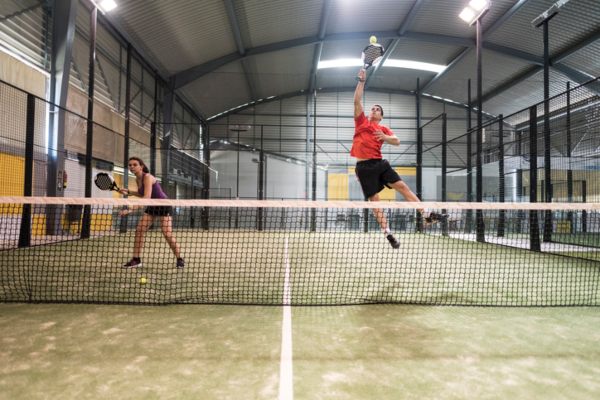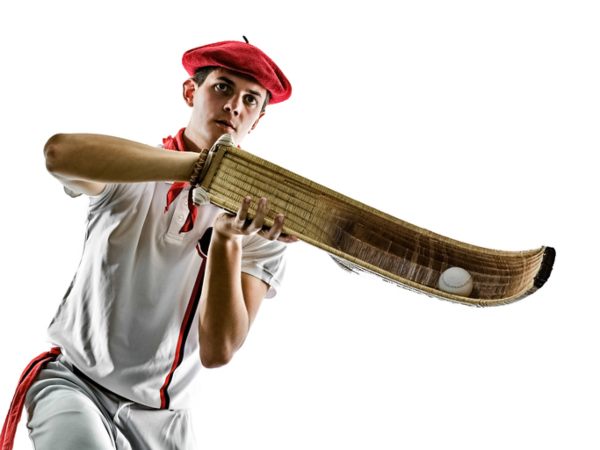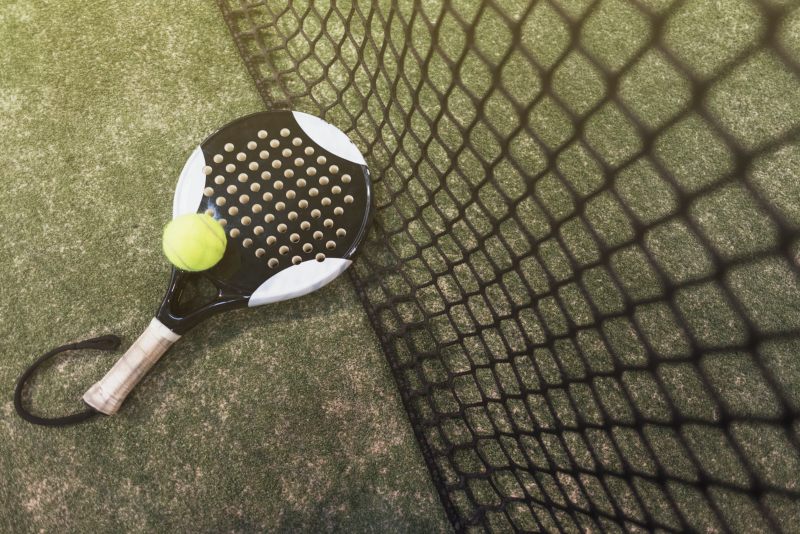Of course, we all know that the Spanish are mad about football but there are also some lesser known sports that are popular here. Maybe you heard about padel, but what is padel? And what is pilota? We’d like to introduce you to padel and pilota so you can really mix in with the locals.
In a century when people think nothing of flying around the globe, you’d think that sports would be pretty much the same wherever you are. However, this really isn’t the case. Speak to a Spanish person about cricket or squash and they may not know very much about it.
Equally you might find yourself asked to join in with a game of padel or pilota. Before you say ‘yes’ you really should know what you’re letting yourself in for.
What is padel or paddle tennis?
Spanish padel or paddle tennis, as the name suggests, is very much like tennis but would seem to be played out in a green house. The court is actually surrounded by glass and is just a little smaller than an actual tennis court.
Padel shares some similarities with squash as the ballis allowed to bounce off the walls and the sport can be just as frenetic. It’s a fast game that’s made easier by the fact that you don’t have to retrieve your ball from someone else’s court.
On closer examination you’ll see that the racquets are different to those used in tennis and are made from fibre with holes in them rather than being strung. The balls are practically the same but the regulations are not quite as strict as those for tennis.
You often play the game with a partner as a doubles match and you serve under-arm which is a bonus for those people who find the serve the most difficult part of the game. When it comes to scoring, it operates in the same way as your usual tennis match.

Paddle tennis is a very popular sport here in Spain and if you’re not sure about actually taking it up yourself you might stillenjoy going along to watch a tournament.
What is Pilota or Pelota?
Pilota, or pelota is reported to be the fastest ball game in the world with the balltravelling at up to 200kmh. It’s played on a three-sided court or frontón with two or five players and the audience often crowd around at close quarters to watch the action. Not only are there differences in how it’s spelt depending upon where you play it in Spain, but also on the rules of the game itself.
In Valencia pilota is not played against a wall but the two teams face each other, a little like in a normal tennis match. However, the basque pelota vasca is more likely to be played against a wall. Whichever version you choose, be prepared – it’s fast and you’d be well-advised to wear a helmet.
The ball is harder than a baseball and consists of triangles made from cow hide. It has a rubber interior and is made according to a very traditional procedure that is passed down within families. It’s not surprising therefore that the balls themselves can be very expensive with some costing more than €100 and sometimes the rough nature of the game means that they don’t last long either!
The players throw the ball against a wall at the end of the court using a chistera which is strapped to an arm. The chistera is a woven basket that acts like a catapult to catch the ball after which it is thrown back at speed. Sometimes a leather glove is worn instead of a chistera and occasionally no gloves are used at all. In Valencian pilota the ball is struck with a bare, or almost bare, hand.

It’s a popular sport for placing a bet. A ‘trinqueter’ collects bets on either team and encourages them to make the game more exciting. In some cases large sums of money can change hands just to add to the excitement.
Padel and Pelota: Not just Spain
Of course, padel and pelota are not exclusive to Spain. You can find clubs in many other cities across the world. So, if you’re perhaps a little bored by the usual tennis or badminton and want to speed up your game a little, then either one of these fast and furious sports might be for you.
No comments yet
There are no comments on this post yet.






Leave a comment